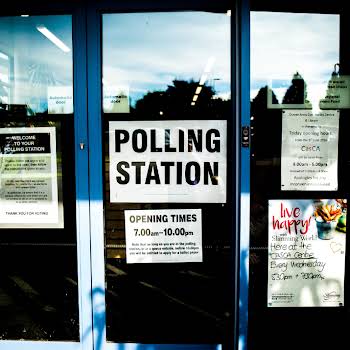
By Erin Lindsay
20th May 2019
20th May 2019
With the divorce referendum taking place this Friday, we break down everything you need to know before you vote
On Friday, as well as voting in the European and local elections, the Irish public will vote in a referendum on divorce.
In Ireland, any changes to our Constitution must be decided by public vote, by way of referenda. With social issues like this one, it can be difficult to find clear and unbiased information on the vote. Below, you’ll find the facts about the upcoming referendum; what changes will be made to the Constitution if the vote is passed, and everything you need to know before making your vote.
What are we voting on?
On Friday, we will be asked to vote on whether or not to change Article 41.3 of the Constitution, which refers to divorce. We will be asked to vote on two changes — one relating to how long a couple must live apart before getting a divorce, and the other on how the Irish State recognises foreign divorces.
Divorce laws now
In 1995, the Irish people voted to allow divorce under certain conditions, which are laid out in the Constitution.
Currently, if a married couple seeks a divorce, they must have been living apart from one another for at least four out of the five previous years. If a person has obtained a divorce under civil law in another country, but has a “subsisting valid marriage” under Irish law, they cannot remarry in Ireland during the lifetime of their ex-partner.
This is how Article 41.3 reads in full:
The State pledges itself to guard with special care the institution of Marriage, on which the Family is founded, and to protect it against attack.
2. A Court designated by law may grant a dissolution of marriage where, but only where, it is satisfied that
i) at the date of the institution of the proceedings, the spouses have lived apart from one another for a period of, or periods amounting to, at least four years during the previous five years,
ii) there is no reasonable prospect of a reconciliation between the spouses,
iii) such provision as the Court considers proper having regard to the circumstances exists or will be made for the spouses, any children of either or both of them and any other person prescribed by law, and
iv) any further conditions prescribed by law are complied with.3. No person whose marriage has been dissolved under the civil law of any other State but is a subsisting valid marriage under the law for the time being in force within the jurisdiction of the Government and Parliament established by this Constitution shall be capable of contracting a valid marriage within that jurisdiction during the lifetime of the other party to the marriage so dissolved.
Voting Yes
If Ireland votes ‘Yes’, two changes will be made to the Constitution.
Firstly, section two, part (i) will be removed from the Constitution altogether. This means the law will no longer require a person seeking a divorce to have lived apart from their partner for at least four out of the last five years. The Oireachtas will then have the power to legislate for this matter.
Secondly, section three will be reworded to the following:
Provision may be made by law for the recognition under the law of the State of a dissolution of marriage granted under the civil law of another state.
This change means the power the Oireachtas has to make laws recognising foreign divorces will be laid out explicitly in the Consitution. It will still be prohibited for a person to remarry in Ireland if their foreign divorce is not recognised under Irish law, but if their foreign divorce is valid, they will be able to remarry.
Voting No
If we vote ‘No’, no changes will be made and the Constitution and legislation around divorce will remain as is.
One vote for all
You can only vote ‘Yes’ or ‘No’ to both changes — you cannot vote on each change separately.
Before you vote
The referendum takes place on May 24. Polling stations will be open from 7 am to 10 pm. To vote, you must first make sure you’re on the electoral register. You can do this by heading to checktheregister.ie.
Before polling day, you’ll receive a polling card in the post telling you where your designated polling station is. You don’t need your polling card with you when you go to vote, but you do need some form of ID, such as a passport, driving license or student card.
On the day in the polling station, you’ll be given a green polling card (polling cards for European and local elections will be different colours). There will be two squares on the polling card — one to vote Yes, one to vote No. Mark an X in your preferred box.
To find more clear and concise information on the upcoming referendum, visit refcom.ie
Related:























